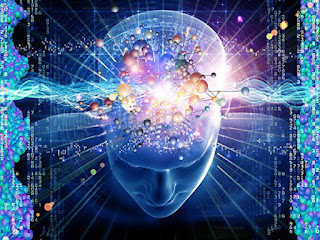I don't know if I made any progress since I last wrote about deconstruction. But maybe I have.
I started to write down my thoughts and feelings about different topic of Christianity. I have this book called Christian Beliefs: Twenty Basics Every Christian Should Know by Wayne Grudem, and for each topic, I started to write down what I really thought. Take for instance, "What is the Trinity?" In traditional Christian theology, it centers on the belief that God and His nature is represented as three parts: Father (God himself), Son (Jesus Christ), and the Holy Spirit (playing himself). But as I learned from watching a bunch of YouTube videos, this thought or theology didn't really appear until later in church history. And this idea has been challenged even in churches that called themselves church that doesn't believe totally on the Trinity of God and His nature. (There is a channel I follow on YouTube called UsefulCharts which the narrators use charts to explain history and family trees of different monarchs and dynasties and also to explain the different relationships in the Bible and other characters in other religious text. There is an 8 episode video series of church history and denominations and at least one or two of them, the narrator Prof. Matt Baker explains how a few churches broke off from other churches because of their belief or non-belief of the Trinity.)
So what do I think? Well, there are some particular passages in John chapter 1 of the Bible and then again in verse John 3:16: "God so loved the world that He gave His one and only Son that whoever believes in him shall not perish but have eternal life." And if you really believe in Scripture, you would believed that Jesus is truly the Son of God but he also referred to himself as the Son of Man. But what does that really mean? Should we believed that Jesus is the God incarnate? Or understand this passage like an actual human boy is a son of a human man? (Side note and something I heard recently: "Man" in Hebrew is "adam", but when Jesus referred to himself as Son of Man, some believed he was trying to connect to his listeners at the time and identifying himself as Son of Adam, like he was one of them, decedents of the original humans. The actual sons of Adam are Cain and Abel, which Cain murdered Abel. Where Cain murdered and Abel was buried, Christ came as a sacrifice for this sin and a resurrection of Abel.)
The real question is: why? If God is the only God, why is there a Jesus, a Holy Spirit, angels, and demons? It challenges the thoughts that God is the only God and that there are no other God, but yet He's allowed to create and reproduce himself as Jesus Christ which sounds a little bit like reincarnation or a regeneration, and He's allowed to create angels which some become demons. In Hinduism and some other religions that believed in other gods and goddesses, it almost looks like (or it does look like) that Christianity also believes in these many spirits or ghosts or what-have-you, and Jesus and the Holy Spirit. But the difference is that, where Hinduism has many gods and goddesses that are on the same level of spiritual hierarchy and that many Hindus truly believes in the power and authority of these gods/goddesses, the Christian angels and demons are a lower tier compared to God and they should not be believed-in as the same level as God. God is the ultimate God. However, Jesus and the Holy Spirit is the same level to God, as they are God's essence, which brings me back to why Jesus and why the Holy Spirit. The trinity is one of those theologies that might remain a mystery for me.
Thus, that is one topic that I'm still wrestling with about the Bible. But I think in all of this, I still do believe that there is a God. In my mind, there needs to be a catalyst for the Big Bang, where God made something out of nothing. I know a lot of astrophysicists are in a big race to find the beginning of time and space, but I think believing in a God is not completely off the table when it comes to creation.
